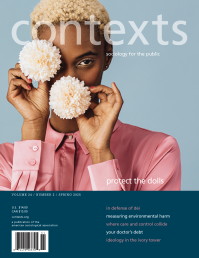Got Skills?

If you’re an academic, moving to the non-academic, post-academic, or alt-academic job market requires a revolution in your thinking about yourself and your abilities. The single biggest transformation is moving from a focus on singular identity to a focus on disparate skills. Think about it—until now, you’ve been able to describe yourself in nouns: a “political scientist,” a “sociologist,” a “theorist,” a “specialist” in X, or Y, or Z. But outside the academy, nobody is looking for those categories of nouns, which only make sense within the university system. How many employers post job ads seeking a specialist in Renaissance Italian literature? Outside the academy, employers are looking for skills.
The task confronting you is to disaggregate your skills from your identity. This requires moving from the singular to the plural, from the linear track model (from graduate school to tenure track job) to the flexible opportunity model (imagining and trying out a host of new options).
The Professor Is In, a blog and business I created to provide professional advising and editing services to academics, opened a post-academic advising wing in fall 2014. It links post-academic job seekers to one of a team of experts: people with Ph.D.s who have successfully navigated the shift to non-academic work and who generously share their knowledge of these conventions with clients and me both. One of these experts, Karen Cardozo, wrote a guest post on the blog called “Beyond Tenurecentrism,” articulating the revolution in thinking required to make this transition:
“The post-academic “mindset requires assiduous participation in a head game that is antithetical to the disciplinary thinking or single-minded focus that is the hallmark of most doctoral programs. Instead, think of your life as a Windows operating system. The ONLY program that was automatically installed when you matriculated into your graduate program was Preparing for Your Academic Career (and as the Professor has amply argued, that is a shoddy program with a lot of bugs and very few updates).
You will need to download and open other applications, such as Keeping Your Options Open, Acquiring Additional Experiences and Skills, and Building a Broader Network (both within and beyond the academy).”
Academics tend to assume they have no skills for the non-academic job market, but that’s entirely untrue. All you lack is experience in framing your skills as such. For example, as a cultural anthropologist of Japan, I might not recognize the multitude of skills I mastered in the course of creating that identity. Taking a moment to disaggregate them from the unitary identity of anthropologist, I discover I can quickly create a list: writing, public speaking, ethnographic research, textual research, interviewing, administering surveys and questionnaires, data entry, data analysis, fluency in Japanese, Japanese cultural expertise, publishing, editing, reasoning . . .Because academics operate in such an insular world of similarly trained people, most of these skills are taken for granted. “Of course I can edit,” I might think, or, “Of course I can speak Japanese! What Japan anthropologist can’t?” When my frame is no longer “Japan anthropologist,” but is expanded to encompass the larger world, Japanese fluency is a rare skill sorely needed by many in business and other fields.
The first task for anyone considering a leap into the non-academic job market is to identify those skills and past experiences that are hidden or assumed within your previous scholarly identity and recognize each one as the achievement that it is.
A good prompt for this work is to construct three categories of skills and experiences that are distinct to you. Call these your Skills Differentiator, Knowledge Differentiator, and Achievements Differentiator. Under “Skills,” you can include proficiency in qualitative data analysis, statistics, public speaking, and so on. Under “Knowledge,” you can include your areas of expertise—disciplinary, geographical, methodological. And under “Achievements,” you can include specific accomplishments: managed a lab, wrote a book, organized a conference, ran a program. Brainstorm freely, and don’t be shy. You don’t need to show this list to anyone but yourself. As you give yourself permission to acknowledge everything you are capable of doing, you’ll see that anyone with a Ph.D. commands a substantial list of skills indeed.
As you contemplate your skills and experiences, don’t limit yourself to those you gained in the Ph.D. process alone. You may well carry forward a range of skills from other phases in your life, other jobs, and outside interests. Remember that, to make the post-academic leap, you must wrench yourself out of old patterns of “tenurecentric” judgment that perceive only a narrow list of academic achievements as valuable. It may take you some time to even register that you possess these other skills, because they’ve been so soundly dismissed in the academic realm.In my own case, as I became more and more alienated from my academic career, I found solace in art and jewelry making, drawing from the Japanese paper crafting I’d mastered as a hobby over the course of my twenty-some years of involvement with Japan. I started a small business to sell my wares at local markets in my Midwestern college town, and found that not only did I do okay in sales, but also that the artistic process soothed and healed my damaged psyche. I found unexpected pleasure in the wholly unfamiliar challenges of running a business—interacting with customers, setting prices, and promoting my work. I was inspired and satisfied in ways I hadn’t felt in years. That little business was the precursor to The Professor Is In, and it taught me the skills I continue to use in this much larger enterprise.
In other words, my current business exists because I took a tiny first step to mobilize a “silly” non-academic skill (origami) to heal myself and make a change. Did I know that my origami hobby (which I’d always considered a bit of an embarrassment to be hidden from my colleagues) would eventually lead to the launch of a successful consulting business? Absolutely not. I only knew that each new task felt right. It was inspiring. I mobilized the skills I had and the new skills I eagerly gained (managing PayPal, building a website) while I constantly queried: What do I want? Am I happy? Is this satisfying? Am I making what I consider to be enough money? Am I offering something of value to the world?
Eventually (this is another story for another time), I came up with the concept of The Professor Is In. First I had to build a website. I already knew how to do that, in a rudimentary fashion, from my jewelry business, so it only took me a weekend. I spent a few more weeks hammering out the website’s message explaining what I was trying to do and why I was doing it, then listing the services and rates. And then I started writing: post after post after post, on all the fundamentals that I wanted Ph.D. job seekers and graduate students to know about the job market, the academic career, and beyond.I didn’t realize it at the time, but my project was an anthropological one. Anthropologists’ stock in trade is to gather taken-for-granted, implicit knowledge, and defamiliarize it, then analyze it for the ways it expresses unspoken norms of power, privilege, and hierarchy. I didn’t think of my task as anthropology; I just knew it made sense to study the graduate training apparatus as a system that reproduces status hierarchy, especially at its points of transition from grad student to job seeker and from job seeker to new hire. Faculty unwillingness to share this implicit knowledge is wrong. It needs to change. I can change it. My business was born.
I did not know then whether The Professor Is In would be successful. I just knew I had to do it. It has been successful, and that’s very gratifying. But even if it had not been, it would have been valuable in opening new doors and revealing new avenues to pursue. Like my jewelry business, The Professor Is In—successful or not—would have played a role in my post-academic transition. Not everything we throw at the wall sticks in the post-academic realm. But everything is meaningful.

Comments 1
letta
June 8, 2015Clearly, this calls for Jared from Silicon Valley and his naive, if energetic, pivoting: